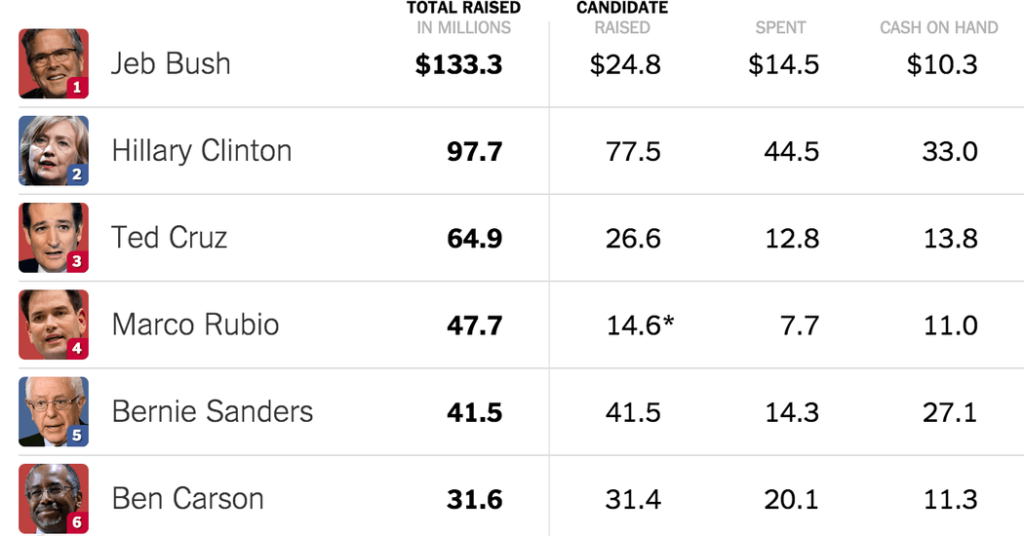Partisan leadership is a byproduct of the democratic system. With the 2016 presidential race picking up, many are left wondering who to vote for.
Separation of beliefs or priorities of care often divides parties. In turn, said parties try to gain control of the political system to implement their policies and further their agenda. This is pretty universal; No matter who is in office, there will be an agenda and there will be opposition. That is just how the game is played.
In regards to the upcoming presidential election, it is estimated that nearly $5 Billion will be donated to campaigns. This number is double the amount spent on the 2012 election. Nearly half of all donated campaign funds have been set in place by just 158 families, 138 to the GOP and 20 to the Democratic Party. Clearly, some have an advantage if certain people are elected and hope to protect themselves and their lifestyles.

The 2016 hopefuls who are leading the money race are represented by the chart above. There is so much money involved in running for president that it is nearly impossible to run without personal funding or backing by a billionaire or two. This results in career politicians controlling positions. This could be a good thing or bad thing depending on the scenario. The problem with some career politicians is that they know how to hide their agendas and how to get the public to back them. Not all are like this and it may be hard to identify those who are before it is too late.
It may be hard to observe just who is receiving funding. Often times, simple research could garner sufficient evidence. This research could identify which entities are backing which politicians, increasing the knowledge of a certain candidate’s personal agenda.
Political parties seem to be so engulfed in personal agendas that they fail to come to an agreement on almost anything. Although there needs to be a divide in the legislative department, one cannot help but wonder if the whole process is efficient. With elective terms being rather quick, a mindset change may enter office after the next election which, in turn, could lead to greater efficiency.
The election terms are hard to argue with. Representatives are elected for just 2 years at a time. This allows for voters to informally approve or disapprove of a particular candidate when it comes time for reelection. This seems like a great idea in principle. However, many voters fail to educate themselves on what actions in which your representatives are involved when it comes to the legislature. With representatives being the main voice of the people in Congress, the correct voice may not be heard. Inefficiency is the result.
Tomas Jefferson famously warned against political parties due to the inefficiency they bring, although he noted the human nature’s desire to oppose. Perhaps the people will realize this. It seems likely that a third party will surface in the U.S. within the next decade, allowing for a clearer voice to be heard.
For those who are well educated on who to vote for, kudos to you. For those who insist on voting for the best speaker, reevaluation may be in order.












